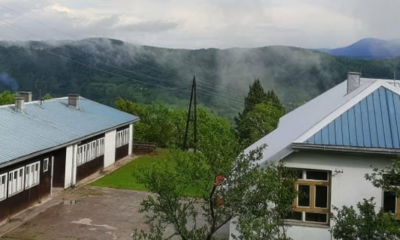Lifestyle
Political Controversy Erupts as Knežević Questions Njegoš’ Legacy

The political landscape in Montenegro has become increasingly contentious as Milan Knežević, the leader of the Democratic People’s Party, has publicly questioned the legacy of the revered poet and ruler, Petar II Petrović Njegoš. In an open letter addressed to Njegoš, Knežević expressed his concerns regarding the contemporary interpretation of Montenegro’s history and its implications for national identity.
Knežević’s letter, which was made public recently, challenges the legitimacy of Njegoš’s authorship of the epic poem Gorski vijenac. He contends that there are doubts about whether Njegoš truly wrote the work attributed to him, suggesting instead that Ilija Garašanin may have been the true author. This assertion has sparked discussions about cultural heritage and national pride, particularly in relation to Montenegro’s historical ties to Serbia and its recent diplomatic relations.
In his letter, Knežević criticized the manner in which Njegoš is celebrated in modern society, noting that many pay tribute to him by quoting his verses without truly understanding their significance. He remarked on the irony of honoring Njegoš while Montenegro faces challenges regarding its recognition of Kosovo. He posed a hypothetical scenario in which Njegoš would have to listen to discussions in the European Parliament about Montenegro’s stance on Kosovo, likening this to a betrayal of the values he represents.
Knežević’s critique also extends to the younger generation, whom he described as the “Z Generation,” suggesting that they have a different understanding of national identity compared to previous generations. His pointed remarks indicate a frustration with how current events are reshaping perceptions of Montenegro’s historical figures.
The letter further delves into the complexities of national identity, accusing Garašanin of manipulating Njegoš’s legacy to align with contemporary political agendas. Knežević’s call for a reevaluation of Njegoš’s work highlights the ongoing tensions within Montenegrin society regarding its history and the narratives that define it.
Knežević concluded his letter with a provocative suggestion: should Njegoš not be recognized as the true author of Gorski vijenac, a new poem should be written that reflects the current realities of Montenegro and its struggles. This suggestion underscores the urgency Knežević feels in addressing national identity issues that resonate with many Montenegrins today.
In a broader context, Knežević’s letter reflects the ongoing debate within Montenegro about its historical narrative, especially as the nation navigates its relationship with Kosovo and its path within the European Union. As Montenegro continues to grapple with its identity, the legacy of figures like Njegoš remains a focal point for discussions about the future of the country and its place in the region.
-

 Entertainment3 months ago
Entertainment3 months agoAnn Ming Reflects on ITV’s ‘I Fought the Law’ Drama
-

 Entertainment4 months ago
Entertainment4 months agoKate Garraway Sells £2 Million Home Amid Financial Struggles
-

 Health3 months ago
Health3 months agoKatie Price Faces New Health Concerns After Cancer Symptoms Resurface
-

 Entertainment3 weeks ago
Entertainment3 weeks agoCoronation Street Fans React as Todd Faces Heartbreaking Choice
-

 Entertainment3 months ago
Entertainment3 months agoCoronation Street’s Carl Webster Faces Trouble with New Affairs
-

 Entertainment3 months ago
Entertainment3 months agoWhere is Tinder Swindler Simon Leviev? Latest Updates Revealed
-

 World3 weeks ago
World3 weeks agoBailey Announces Heartbreaking Split from Rebecca After Reunion
-

 Entertainment4 months ago
Entertainment4 months agoMarkiplier Addresses AI Controversy During Livestream Response
-

 Science2 months ago
Science2 months agoBrian Cox Addresses Claims of Alien Probe in 3I/ATLAS Discovery
-

 Health5 months ago
Health5 months agoCarol Vorderman Reflects on Health Scare and Family Support
-

 Entertainment4 months ago
Entertainment4 months agoKim Cattrall Posts Cryptic Message After HBO’s Sequel Cancellation
-

 Entertainment3 months ago
Entertainment3 months agoOlivia Attwood Opens Up About Fallout with Former Best Friend




















